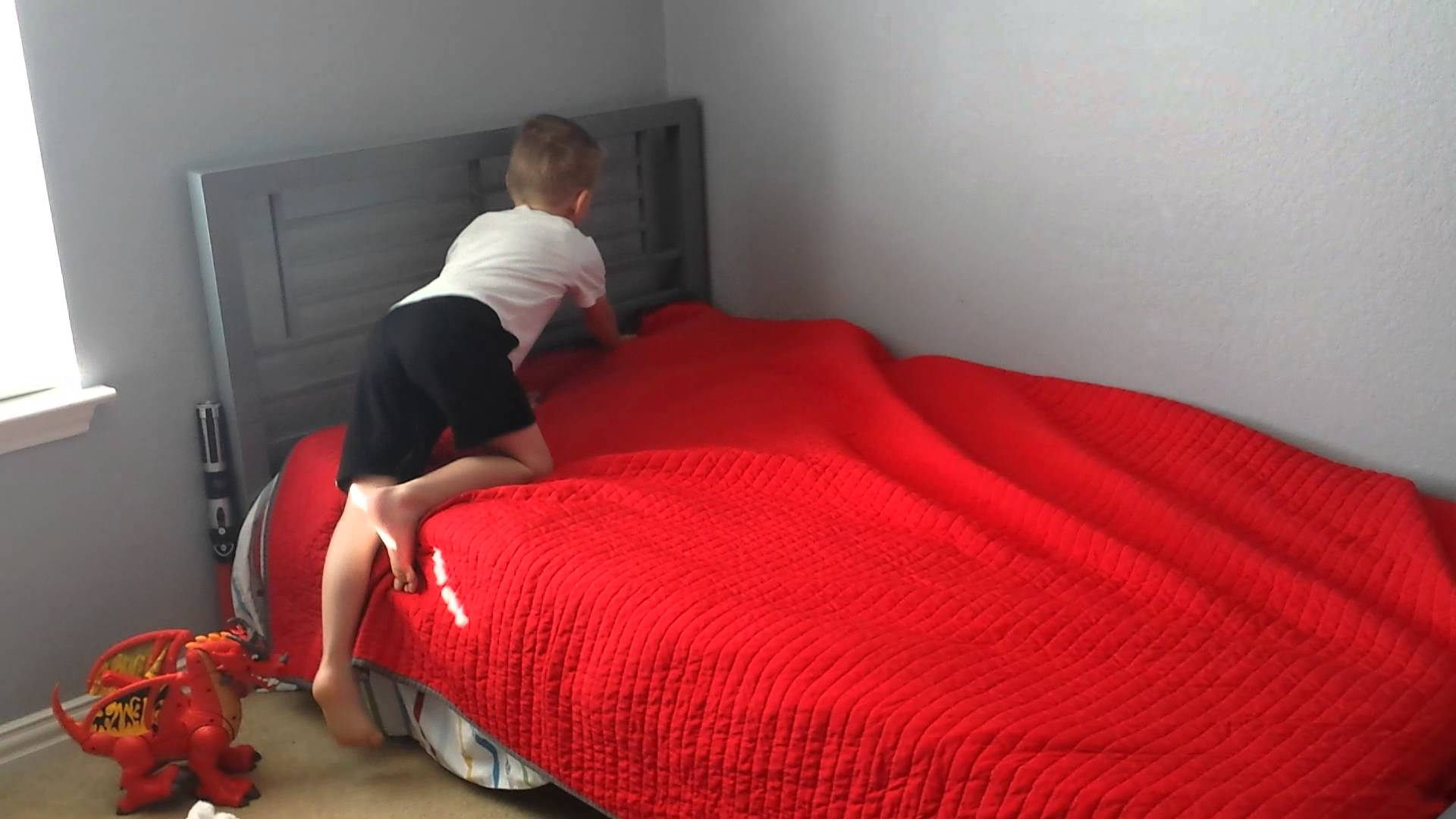Why Your Kids Should Make Their Beds
In his commencement address at the University of Texas at Austin in 2014, Admiral McRaven described making the bed as one of the most important lessons he learned in his basic SEAL training: “The wisdom of this simple act has been proven to me many times over. If you make your bed every morning, you will have accomplished your first task of the day. It will give you a small sense of pride, and it will encourage you to do another task, and another and another. And by the end of the day, that one task completed will have turned into many tasks completed. Making your bed will also reinforce the fact that the little things in life matter. If you can’t do the little things right, you will never be able to do the big things right.”
In fact, growing up with a healthy habit of doing chores at home is quite important. In Lebanon, children are rarely expected to help in the household. However, as research has shown, completing chores around the house helps build a child’s character and prepares them better for adulthood (Lythcott-Haims ,2016). Etcetera spoke to Pauline El Kallassi about why it is important for children to do chores in the household.
“Chores are important simple tasks that teach children to take responsibilities early on,” explains Pauline. Having chores can build a child’s self-esteem and sense of value. In addition, doing chores teaches children self-control. As they focus their energy and attention on completing a task, they become more disciplined and structured. For example, if we are to follow Admiral McRaven’s guide to success, making the bed teaches an individual about the importance of tidiness, routine, and organization. As Pauline adds, “making the bed teaches children that they can take care of their needs. They do not need to wait for others to take care of them or their stuff;” thus, they are on the right track to becoming independent go-getters!
Unfortunately, in Lebanon, Pauline believes there is a widespread belief that parents should do everything for their children. “It is [usually] the parents who prepare snacks or do homework and projects. In these households, parents are constantly following their children and doing what they are supposed to do in the belief that they are helping them.” Indeed, this “help” causes Lebanese children to become dependent explains Pauline, “they feel like they can get whatever they want easily without making any effort,” she elaborates.
What parents need to realize is that assigning chores is not a punishment, but a privilege. “Adding chores to a child’s life sends the message to the child that ‘I am confident that you can help me and that you can do it,’” iterates Pauline. Parents need to assign simple age-appropriate chores to their children and teach them how to complete them. As early as age 2-3 years, children can learn how to put away their toys. They can then gradually be taught to do other simple chores around the house such as arranging the cushions on the sofa, putting the napkins on the table while preparing for dinner, and clearing the table afterwards when they are 4-5 years old. Children see themselves as contributing to their family.
Undeniably, the alternative is not that great. Children who do not have any chores are at risk of being spoiled. Pauline explains that such children are usually regarded as immature and self-centered: “they do not tolerate any frustration and always want their needs met as soon as possible by others. They might scream, yell, nag, and slam doors to get what they want. These children do not appreciate the effort that others are doing for them because they are used to getting everything easily without working for it,” she elaborates.
So, if you want to raise a well-rounded and independent child, assigning them chores is probably a good idea! Pauline stresses the importance of not tampering with a child’s chore once it is complete. “It’s okay if the chore is not perfect in the beginning. Parents need to let things pass so that their child can learn to perfect the task with time,” she adds. For example, if the bed is bumpy and not well done, eventually, the child will learn how to do it properly. But, if the mother intervenes and re-does the bed, “the child will give up on doing it, and his self-esteem will be affected,” clarifies Pauline.
Whether it’s making the bed, washing the dishes, or feeding the family pet every day, it is impertinent that children have chores to do on a regular basis. Ultimately, your child will thank you for teaching them the value of routine and hard work.
Pauline El Kallassi Mansour is a clinical psychologist specialized in Adult and Adolescent Psychotherapy and Child Play Therapy, and she is a certified Family Coach. She runs her own clinic in Zouk Mosbeh. Pauline holds a Master’s degree in psychology from the American University of Beirut (AUB). She also received a diploma in Psycho-Organic Analysis from L’EcoleFrancaised'Analyse Psycho-Organique in Paris and did her training in Clinical Psychology at the University of Denver in the USA.






